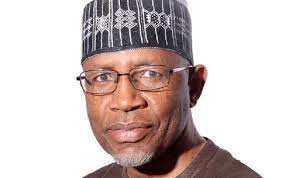The Director-General of the Securities and Exchange Commission (SEC) Nigeria, Mr. Lamido Yuguda, has projected that given the current level of capital expenditure, it may take up to three centuries to bridge the nation’s consistently widening infrastructure gap.
Yuguda, who made this forecast at the 2023 Chartered Institute of Stockbrokers (CIS) National Workshop which was held in Abuja, cited a World Bank report which reflected that Nigeria’s current level of public spending on infrastructure was one of the lowest globally. .
The Director-General, who was represented by the Executive Commissioner, Corporate Services, Ibrahim Boyi, maintained the need for a new approach to financing infrastructure development in the country to spur the desired economic growth there was the growing need to leverage public-private partnership and that the capital market could play a crucial role in this arrangement.
Yuguda told the audience that the Nigerian capital market, based on its current capital base and established project financing options, had the capacity and was well-positioned to finance Public-Private Partnership (PPP) infrastructure projects in the country.
According to him, this approach is common in developed countries where governments and private sector partners raise debt capital for PPP projects through bonds and loans.
The investment expert clarified: “This is an infrastructure financing model that is a common choice in many developed nations of the world.
“Capital markets allow governments and private sector partners to raise debt capital for PPP projects. Governments can issue bonds to finance their share of the project costs while private companies can secure loans or issue corporate bonds for their contributions.
“The capital market’s ability to provide funding, risk management tools, liquidity, and efficient allocation of resources makes it a crucial partner in the success of PPP projects.
“It allows governments and private sector partners to leverage their strengths and resources to deliver essential public infrastructure and services”, Yuguda added.
He commended the CIS for its contributions to Nigeria’s economic growth by training individuals and corporates and other organizations on the necessary skills and expertise in the financial sector, which is crucial for the success of PPP projects.




